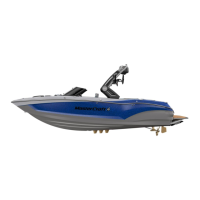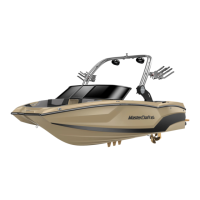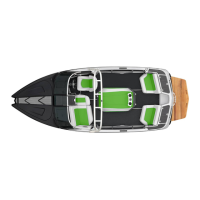2023 OWNER’S MANUAL
/
04
SAFETY AFLOAT
The cause of many boating accidents is often the operator’s
failure to follow basic safety rules or written precautions.
Many accidents can be avoided if an operator is completely
familiar with the boat, its operation, and can recognize potentially
hazardous situations before an accident occurs. Common risks
with open power boat operations include:
• Falls over board
• Falls on board
• Fire
• Carbon Monoxide Poisoning
• Propeller Injury
Failure to comply with safety-related information and instructions
may result in serious injury or death to you and/or others. Always
use common sense when operating the boat or participating in
any activities associated with the boat, including, but not limited
to, periods of time when the boat engine is shut down and the boat
is not in operation.
• Improper operation of a boat is extremely dangerous!
Operators must read and understand all operating manuals
supplied with the boat, before operation.
• On-board equipment must always conform to the governing
federal, state and local regulations.
• Always attach the engine emergency safety shut-off lanyard to
your clothing (such as a belt loop) when operating the boat.
Never override or modify the engine emergency safety shut-off
switch in any way.
Never operate the boat, water ski, wakeboard, wakesurf or engage
in other water activities while under the influence of alcohol
or drugs.
• All persons must be seated in a designated occupant seating
area while the boat is in motion. (A seating label is affixed in each
model.) Never stand or allow passengers to stand in the boat or
sit on the motor box or tower (where equipped), gunwale, decks,
or any location other than occupant seating while underway.
You or others may be thrown within or from the boat, which could
result in serious injury or death. Never allow occupants to use
sun pads or transom seating while the engine is running.
On models equipped with sliding or adjustable seat backs,
ensure that the backs are in the locked position prior to
operating the boat.
• Prior to starting the engine, open the engine box and check
the engine compartment and bilge for gasoline and oil vapors.
Always operate the blower for at least four (4) minutes before
starting the boat. Failure to do so may result in fire and/or
an explosion.
